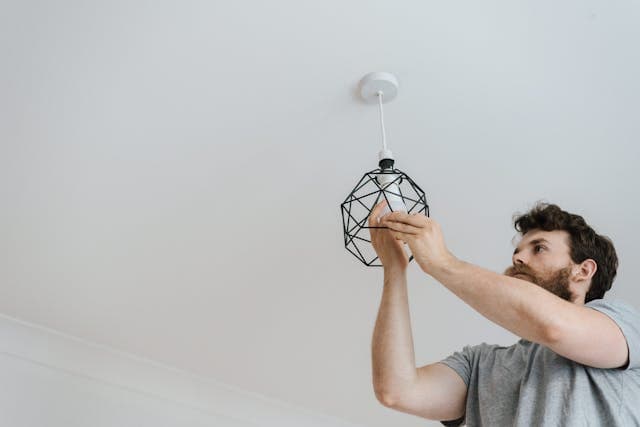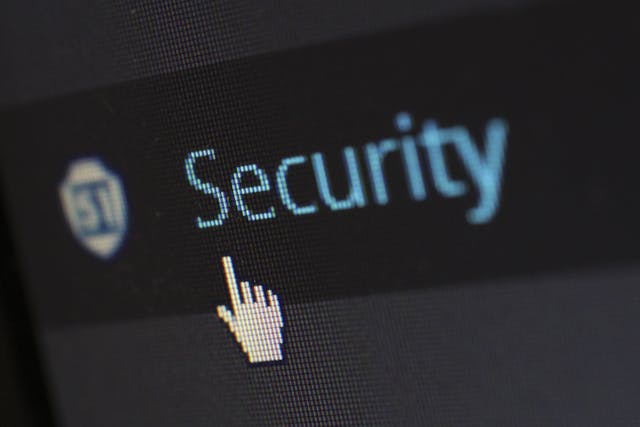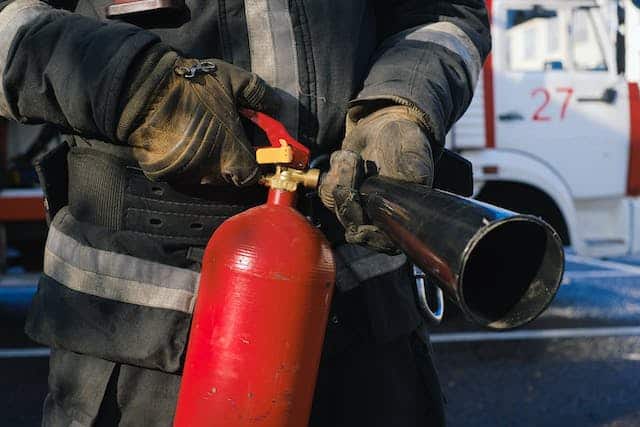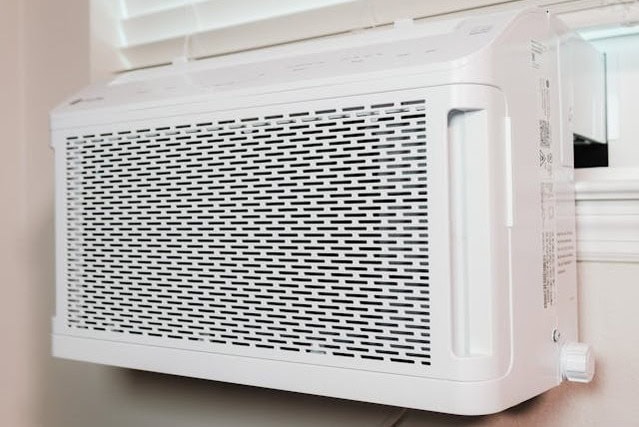Tips to Keep Your Home (and Investment) Safe
Key Takeaways
- Keeping your rental property safe starts with regular inspections and simple upgrades like lighting, locks, and landscaping.
- Features like smoke detectors, security systems, and weatherproofing help protect both your tenants and your investment.
- Careful tenant screening and up-to-date insurance policies add important layers of protection for long-term success.
- A professional property manager like California Realty Group can help you stay on top of safety, maintenance, and compliance—so your property runs smoothly year-round.
Learn More About California Realty Group
Owning a rental property comes with a great deal of responsibility. As a landlord, you want your property’s value to appreciate so it can provide consistent income and remain safe for both tenants and your long-term financial goals. One way to do this is to keep your property safe all the time.
Here are essential tips from California Realty Group to keep your rental property safe and secure.
Conduct Regular Property Inspections
One of the most effective ways to prevent accidents or damage is through consistent property inspections. Regular inspections help you identify wear and tear, deferred maintenance, and potential safety hazards before they escalate into larger issues. You should schedule seasonal inspections, ideally at least twice a year—once before the winter months and once before summer.
During these checks, look at the condition of the roofing, plumbing, HVAC systems, electrical panels, smoke alarms, carbon monoxide detectors, and exterior features like fences or sidewalks. Also, keep an eye out for signs of pest infestations, water leaks, and mold growth. These issues, if unnoticed, can spiral into costly repairs and tenant complaints.
Keep the Property Well-Lit
Proper lighting not only boosts curb appeal but also deters criminal activity. A poorly lit property can be an easy target for trespassers and vandals. Install outdoor lighting near entryways, parking areas, walkways, and shared spaces. Motion-sensor lights are particularly effective because they conserve energy while still activating when movement is detected.
Inside the home, ensure hallways and staircases are adequately lit to prevent triping hazards. Regularly replace any burnt-out bulbs and verify that exterior lights remain functional throughout the year.
Maintain Secure Doors and Windows
Doors and windows are the first lines of defense when it comes to securing a home. Make sure all exterior doors are solid, preferably made of metal or solid wood, and have quality deadbolt locks. Screen doors and sliding glass doors should have additional security locks or bars that prevent them from being lifted or pried open.
Windows should have locks that work correctly and cannot be easily broken or manipulated from outside. In ground-level units or basement windows, consider installing reinforced glass or security film that makes it harder to break through. Encourage tenants to notify you immediately if locks are not working or feel loose.
Install Security Systems
Modern technology has made home security systems more accessible and affordable than ever. Installing cameras, doorbell video systems, and alarm systems can significantly improve the safety of your rental property. These systems not only deter crime but also provide evidence in case of vandalism or theft.
If your property is in a higher-crime neighborhood or near a commercial area, security systems can make a big difference in tenant satisfaction and retention. Even if your tenants opt to install their own devices, you should still secure shared entryways, garages, and laundry rooms if applicable.
Before installation, make sure to check any legal requirements in your area, especially regarding surveillance in multi-unit properties. You must also inform tenants about the presence of cameras and their locations.
Address Landscaping and Exterior Hazards
While landscaping enhances your property’s appearance, it can also affect safety. Overgrown bushes or trees can provide cover for burglars or block visibility near entrances. Keep shrubs trimmed low, especially around windows and doorways. Tree limbs hanging close to the house can cause roof damage during storms or provide access points to upper windows.
Additionally, all high-traffic areas like sidewalks, steps, and driveways should be free of cracks or uneven areas that may cause someone to trip and fall. Remove debris or fallen branches promptly and ensure proper drainage to prevent water pooling and mold.
Don’t Overlook Fire Safety
Fire hazards can lead to devastating losses, both for tenants and property owners. Install smoke detectors in all bedrooms, hallways, and common areas. Carbon monoxide detectors should be present as well, especially if the property has gas appliances or fireplaces.
It’s essential to test these alarms regularly, ideally every six months, and replace batteries at least once a year. Consider keeping a log of maintenance records to show compliance with local fire safety codes.
If your property has fire extinguishers, they should be inspected annually and placed in easily accessible areas like kitchens and laundry rooms. In multi-family properties, post-emergency exit maps and evacuation procedures in common hallways.
Screen Tenants Carefully
Keeping your investment safe also means renting to responsible individuals. A thorough tenant screening process helps reduce the risk of property damage, non-payment, and disruptive behavior.
Screen applicants by checking their credit history, criminal background, rental history, and income verification. While no system is perfect, being consistent with your screening process sets expectations for how you manage the property.
It also reinforces to prospective tenants that your property is well cared for and not a place where negligent behavior is tolerated. Always ensure your screening practices comply with Fair Housing laws and local regulations to avoid discriminatory practices and focus only on objective, legal criteria.
Prepare for Weather Emergencies
Depending on your property’s location, weather can pose a significant threat. From hurricanes and wildfires to flooding, it’s important to have a preparedness plan in place. Ensure gutters are clean, sump pumps are working, and storm drains are clear.
Consider weatherproofing windows and doors, especially if your area is prone to strong winds or heavy rain. Keep sandbags on hand in flood zones and have your HVAC system serviced before regularly.
Make Sure You Have Appropriate Insurance Coverage
Property insurance is a must for landlords, but it’s not something you should set and forget. Review your policy annually to ensure you have adequate coverage for structural damage, liability, and loss of rental income.
You will also want to require tenants to carry renters’ insurance, which protects their personal belongings and adds an extra layer of liability protection for you as the property owner. A good insurance plan provides peace of mind and can reduce financial hardship in the event of a fire, break-in, or natural disaster.
Work with a Professional Property Management Company
Ensuring your rental property is well cared for requires attention to detail and consistent oversight. When you own multiple properties or live far away, partnering with a professional property management company like California Realty Group can help keep everything running smoothly and efficiently.
Property managers handle routine inspections, emergency maintenance, tenant screening, and day-to-day communication on your behalf. They’re familiar with local codes, safety regulations, and compliance standards. This means you don’t have to constantly worry about missed deadlines, legal risks, or surprise repair issues.
In terms of safety, a property manager will ensure your home is consistently monitored, well-maintained, and protected from avoidable risks. They’ll also keep thorough documentation and maintenance logs, which can help you if an incident occurs or if you’re ever involved in a legal dispute.
Ultimately, working with a reliable property management company protects your investment, saves you time, and increases tenant satisfaction—making your rental business more secure and profitable.
Talk to a Property Management Expert
Final Thoughts
Protecting your rental property is not just about locks and alarms—it’s about creating a system of safety that spans maintenance, communication, and professional oversight. Being proactive today prevents bigger problems tomorrow.
Whether you’re an experienced investor or a first-time landlord, taking safety seriously shows your tenants that you care. If you need help, contact California Realty Group.
Contact Us to Keep Your Property Secure






